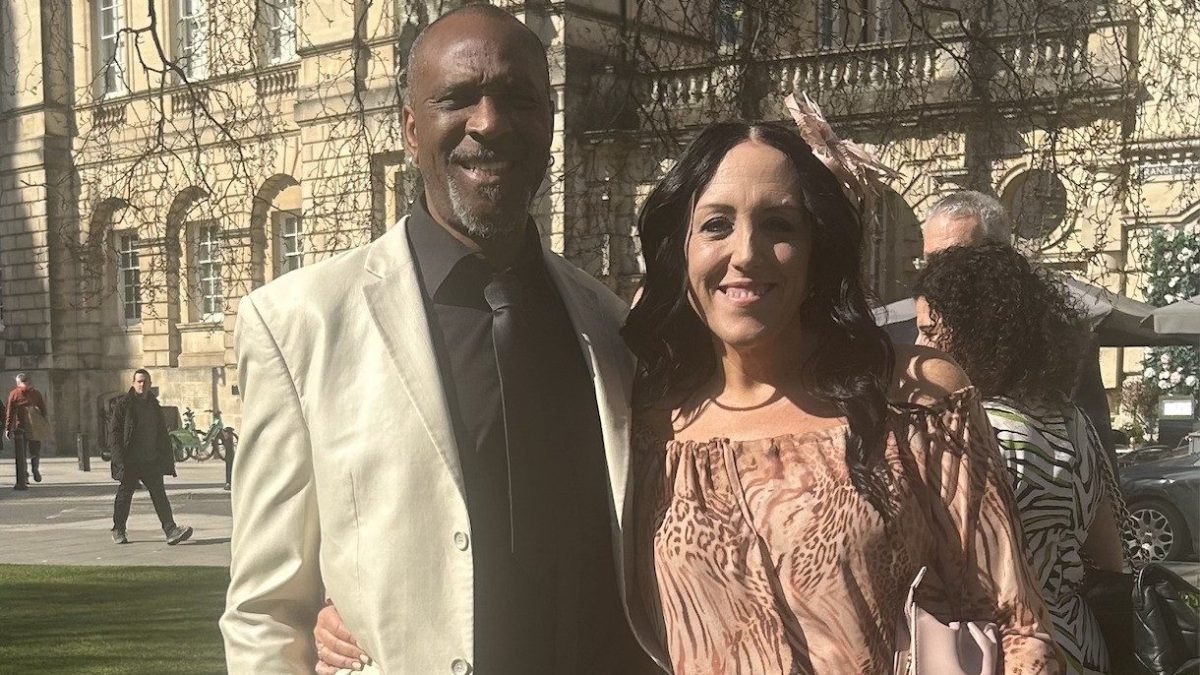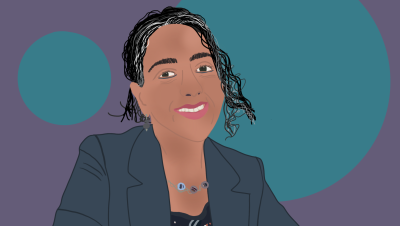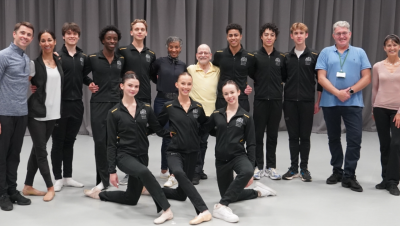Features / Invisible Disabilities
Invisible injuries, visible struggles: fighting for brain injury survivors
Headway is a charity that has been supporting individuals affected by brain injury for more than 40 years, their mission is to help survivors regain independence and improve their quality of life through specialist social and cognitive rehabilitation.
Lindsey Forbes works as an office support outreach worker at the Barton Hill based charity, she got involved with the charity after her partner Colin suffered a brain injury 19-years-ago as a result of an unmotivated attack.
When he was discharged from the hopsital she says they received very little information on what to expect in the aftermath of the incident and the recovery process.
is needed now More than ever
Colin looked the same, but Lindsey started to notice a shift in his personality, he was more angry, irritable, his ability to recall things diminished and he lacked an understanding of seemingly simple things.
All of these traits are hugely stigmatised are are too often mistaken for mental illness or personality flaws but in the case of Colin and many others with brain injuries, are in fact a direct result of neurological damage.
It took them two years to get a GP to listen and refer him.
After that, the process sped up and the turnaround within the head injury therapy unit in Bristol was quick.
The multidisciplinary team of neuropsychologists, occupational therapists, speech and language therapists were essential to piecing together the overlapping effects of the brain injury.
As “fantastic” as that service is she says, unless you’ve sustained a physical head injury that’s causes a brain injury the service isn’t available.
Motivated by her families own experience and a desire to learn more about brain injuries, she joined Headway.
This eventually turned into a desire to want to help other families to traverse the unknowns, to challenge misconceptions about brain injuries and create more awareness of the impacts.
The impact of a brain injury doesn’t just affect the one person, it also affects everyone around them.
For Lyndsey and her family, she says the perpetrator of the attack on Colin will never truly understand that.

Colin and Lyndsey Forbes – photo: Forbes family
She says one of the biggest reasons that those living with brain injuries are misunderstood is because many of the effects of brain injury are invisible.
You can’t see memory loss, fatigue, impulsivity, or sensory overload, and because people often look “fine” on the outside, others assume they are fine.
The symptoms are often unpredictable, and every person is affected differently depending on the type and location of the injury.
That variability can confuse people – especially when someone’s capabilities seem to fluctuate from one day to the next.
Recovery itself is another area that people get wrong. With a physical injury, there’s usually a clear timeline for healing. But brain injury doesn’t work that way.
It’s not linear, and for many people, full recovery isn’t even possible.
That’s hard for others to grasp, especially when someone seems to be “doing better” one day and struggling the next.
People can lose patience, withdraw support, or expect a level of functioning that simply isn’t realistic.
She believes that this belief is exasperated by the portrayal of brain injuries in the media as something someone either “gets over” after rehabilitation or as something that dramatically changes someone’s personality overnight.
The reality is far more nuanced, long-term, and emotionally complex.
All of this contributes to survivors and their families feeling like they constantly have to explain and sometimes even justify what they’re going through.
View this post on Instagram
In the nine years of working with Headway she has found that this leads to survivors being dismissed, judged unfairly, or even accused of exaggerating.
That’s what happened to her partner Colin.
Working in the transportation industry (the business cannot be named for legal reasons), he was relatively happy for the five years he had been working there and had no issues regarding his work ethic and the quality of work he delivered.
However, there were issues regarding his conduct.
When Colin first started there, Lindsey went in to deliver a mini training session on brain injuries and discussed with his employers what support they could offer him to ensure he was able to overcome any challenges.
She says when Colin was struggling, to avoid any conflict they would allow him to go off and take a ten minute coffee break to regulate himself.
For the most part this worked and it was a reasonable adjustment that they were happy to make.
But problems arose when the high turnover of staff meant managers were coming in and not being briefed on Colin’s needs.
Despite him having a personal file with all of this written in, she says it was “completely ignored” and he was constantly getting suspended which hugely negatively impacted his outlook on life.
“Every time he was suspended he would fall into a sort of depression because he had no reason to get up in the morning.”
She says having a routine of going to work gave him a sense of purpose, which was subsequently lost for a period of months on end.
To which Lindsey would then have to step in, raise grievances and schedule meetings to discuss the problems.
“I almost had a full-time job advocating for him,” and all the things she “shouldn’t have been doing” she laments.
The situation not only damaged his confidence and self-esteem, but “he knows he’s different now.”
That difference in ability, physically or cognitively is a reality that is often more difficult to reconcile in someone who has had a brain injury.
Despite Colin’s workplace having a HR department and the capacity to implement these adjustments they didn’t, and now that he has left that employment the pair are unable to discuss it further due to an agreed settlement.
This experience could have completely demoralised him to give up on ever finding stable and fulfilling work, but he has since started working as a leisure assistant for Bristol City Council, a place where Lindsey says has been “a picture of what support should be.”
Not only does this workplace make those adjustments, Colin has been empowered to speak to his supervisor about any issues and advocate for further adjustments when needed.
Because they have been receptive to that, and flexible to any changes that may occur, Lindsey has been able to take a step back.
But there are constantly little hurdles that present themselves as time goes by, and as skilled as Colin is in his job the application perimeters for a promotion have been difficult to overcome.
Lindsey believes employers find it it difficult to find and implement the appropriate level of adjustments so that it is fair to all candidates.
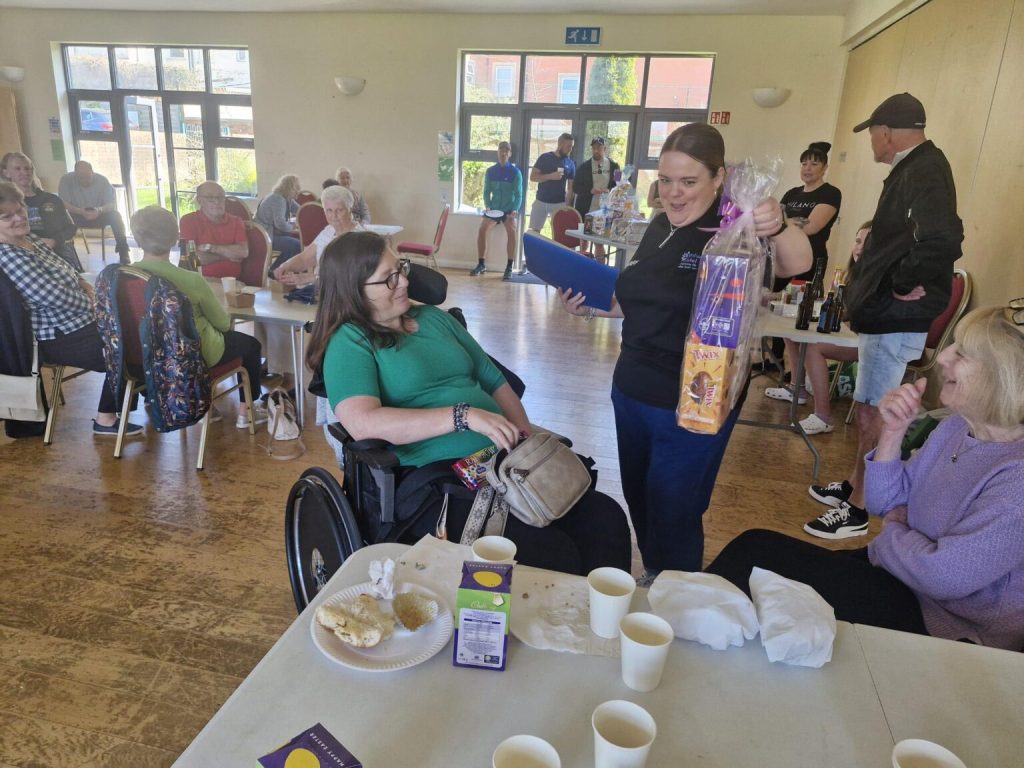
An Easter Coffee Morning at Headway – photo: Headway Bristol
The importance of being able to advocate for oneself when you have a disability cannot be overstated, and in the abnsence of that autonomy having someone who can do so for you is vital.
From personal experience with Colin, as well as her professional experience with Headway, nobody knows this better than Lyndsey.
Much of their work is ensuring that those who use claim benefits are receiving the appropriate amount and receiving a fair assessment.
Personal independence payments (PIP) are intended to help with the extra costs associated with a long-term health condition or disability, and it can be received alongside other benefits and while working
Sometimes those managing with brain injuries simply find applying for PIP too overwhelming.
But on a systemic level, obtaining PIP from the Department for Work and Pensions (DWP) has been fraught with challenges and recent criteria changes.
It appears just about anyone with a medical background can carry out the assessments.
During the bi-annual review of Colin’s PIP, Lyndsey says he has been assessed by a paramedic, a mental health nurse and bizarrely a physiotherapist.
Never a doctor or a neurologist, someone who is qualified and more likely to understand the implications of Colin’s disability.
That said, even they may only still scratch the surface of the severity of impacts on his life.
She notes that those with brain injuries will often downplay
As Lindsey testifies, this isn’t just the case for Colin.
Many people experience injustices as the result of an incorrect PIP assessment, as a result Headway will accompany people during their assessment.
“You only have to give one positive and they [the assessors] hang onto that,” Lindsey warns.
Recalling a scenario where helped to complete the forms for the assessment for a user of Headway, you have to give as much evidence as possible to illustrate how your disability impacts your life.
“There was a young lady who was an in-patient at the brain injury rehab rehabilitation unit and when she was in there she had a support worker that helped her to cook a carbonara.
“Bear in mind she was in the brain injury rehabilitation unit at the time she was with a support worker she didn’t have to go shopping for the ingredient.
“She didn’t have to really read the recipe.
“She was she was 100 per cent supported in doing this,” but she still managed to burn her hands while she was doing it.
Despite all this information, Lynsey says she was denied PIP because of this single piece of information was taken in isolation, and used as evidence that she could be independent.
“It basically said: ‘well you can obviously read and obviously prepare food because you cooked the carbonara.”
But she says this got taken further out of context and was used as evidence to say she if she could do this, she could do something like plan a journey.
The team at Headway were able to get it overturned and she now has enhanced PIP.
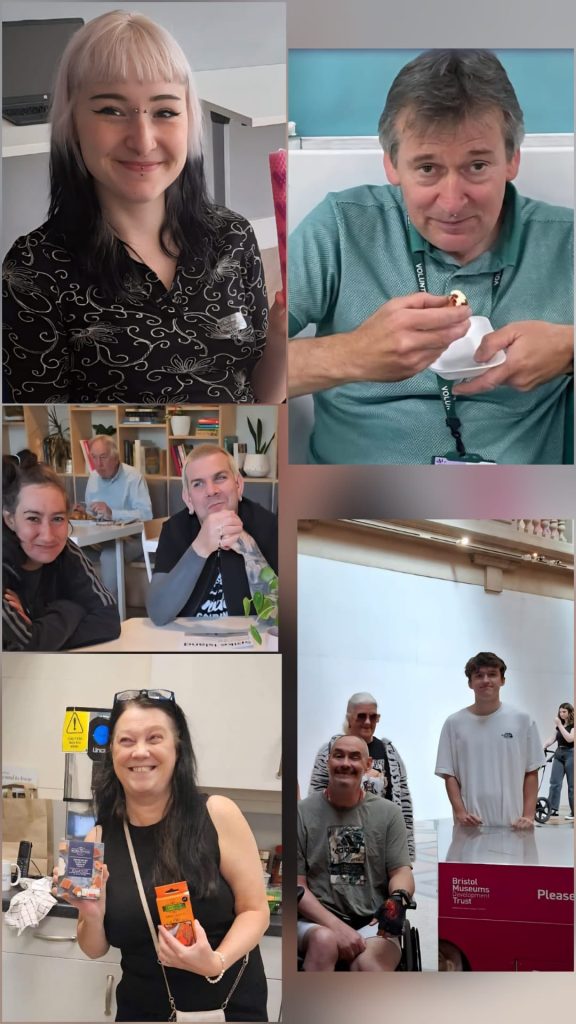
Headway Bristol is currently recruiting for more volunteers to join the team – photo: Headway Bristol
Working for Headway has given Lyndsey an unparalleled insight into how brain injuries impact the everyday lives of people and she sees that accessibility is still lacking.
“We’ve always said that brain injury isn’t really something people understand until they’re forced to understand it, whether they have a brain injury themselves or their loved one does.”
Because of this lack of understanding, the charity have bought out brain injury identity cards, so if someone is in trouble like for example an accident and they produce these cards, paramedics or other civilians will be able to assist in a way that is helpful.
If you need support with navigating a life after a head injury, their services are free of charge and you can visit them and spend the day to just talk or to help with specific challenges like PIP, picking it up when you like and for however long is needed.
They also provide outreach at hospitals, talking to families of anyone coming into ICU with a brain injury and offering an honorary contract of support and giving them clarity on what to expect following.
Support and guidance is on offer to carers too.
Even if you “just need someone to talk to, we don’t really have any kind of any limitation.”
Main photo: Lyndsey Forbes
Read next:
 Our newsletters emailed directly to you
Our newsletters emailed directly to you